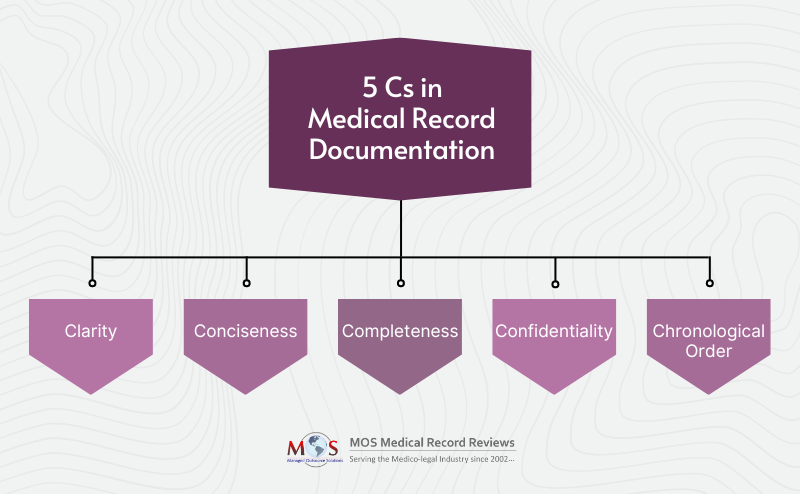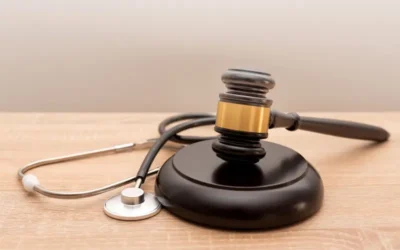Patient medical records include important information such as personal data, physical and mental conditions, medical history, and current medical care. Medical records are necessary not only for treatment decisions and patient care, but also serve as legal documents. Attorneys use these records as crucial evidence in court to prove many cases – personal injury, medical malpractice, workers’ compensation and more. And so, if the documentation is erroneous, they can’t prove whether a medical event or procedure occurred or not. Healthcare providers need to maintain accuracy and efficiency in the medical charts of their patients. Law firms can utilize chart review solutions to easily determine whether a medical chart is complete and adequate. Proper organization and review of medical records is what helps attorneys to determine the strengths and weaknesses of a case and make key decisions related to the case.
Diverse documentation errors may occur when physicians, nurses or medical assistants make entries in the medical records. Common errors include entering the wrong names of medications, wrong dosage, incorrect use of copy-paste, missing health information, wrong patient details, not reporting patient care activities or drug related information such as a drug reaction or any change in the patient’s condition and more. Such errors in the records could result in wrong diagnosis, poor quality patient care, delayed reimbursement and even malpractice risk for providers.
It is really important that all medical procedures, treatments, instructions and care must be documented as per HIPAA standards and every entry must be clear, accurate and legible with the correct date, time and signature.
5 Cs in Medical Record Documentation
Those maintaining patient records must be aware of these 5 Cs in medical record documentation.
- Clarity – Consider using accepted medical terminology and standard abbreviations in the record that accurately describe a patient’s condition. Also, use proper grammar and correct spelling.
- Conciseness – Add short, concise notes and keep the report brief and to the point. Long pages of irrelevant descriptions will make the record-keeping a burdensome task for providers.
- Completeness – Make sure not to leave space between entries to record delayed entries. Instead, complete the documentation on time. Fill out all forms with the correct information and provide complete data in the medical record.
- Confidentiality – All information in the patient medical records must be kept confidential and safe. Practices must create thorough data security policies and confidentiality agreements based on HIPAA standards and never disclose those records without the written consent of the patient.
- Chronological Order – Well-organized medical records are easy to access and manage. Documentation specialists must date all entries and arrange reports in a chronological order. Proper organization makes it easy to document patient care and resolve any legal questions regarding the treatment performed. Records organized by date and time into digital files will be easy to read and quickly navigable
HIPAA And The Important Question Of Medical Records Privacy
Steps To Consider When Requesting Medical Records
Watch the video:
Take advantage of our medical record review solutions.
Call us at 1-800-670-2809! Ask us for a Free Trial!
Medical records should also be legible, timely and accurate. It is often required that patient medical records be kept for 10 years. Also, always record the patient’s exact words and never rephrase or summarize the sentences. The exact words will help the physician make a more accurate diagnosis. A complete medical chart makes processes such as medical record review easier for insurance companies and for attorneys handling medical litigation. A perfectly documented chart serves as one of the critical elements for the best defense. Along with standard guidelines for documentation, hospitals must have a comprehensive documentation framework to improve the overall process by reducing errors.





